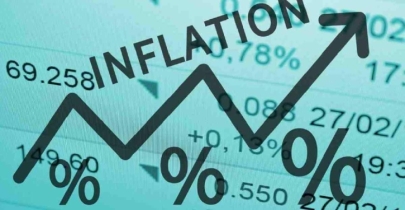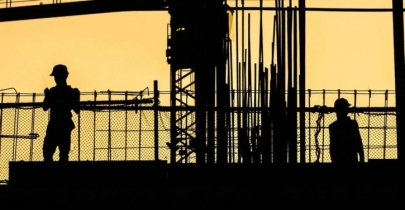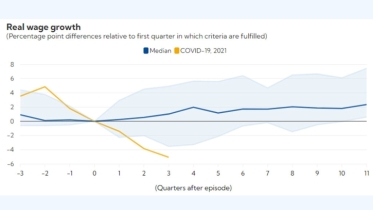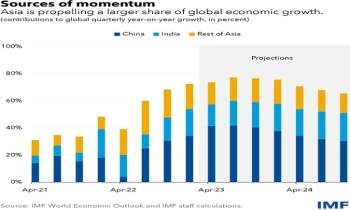Rana Plaza victims await justice but they change Bangladesh’s industry
Shafiqul Alam || BusinessInsider
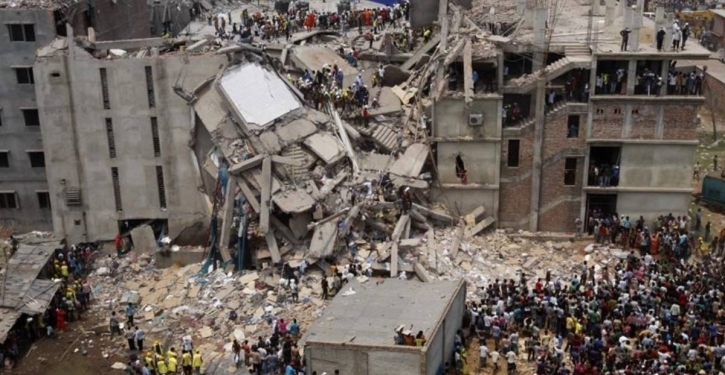
A view of Rana Plaza building after it collapsed at Savar. Photo: File
Much of our recent economic success owes largely to the collapse of Rana Plaza and the industrial-scale murder of its 1,138 workers in its pancaked ruins. They perished as they were forced to work in a crumbling factory by influential building and factory owners. Their families didn't get the compensation they deserved. But the global outcry over factory safety in Bangladesh, which the Rana Plaza disaster so damningly highlighted, changed the country's industry -- and the nation -- for good.
As we mark the ninth anniversary of one of the world's worst industrial disasters today, let's not forget that whatever safety upgrades Bangladeshi factories have witnessed in the past nine years were due to the slaughter at Rana Plaza. Rana Plaza and the resulting two global monitors -- Accord and Alliance -- it has overhauled our factory safety. It also injects fears both among the factory owners and global retailers who buy apparel from these plants that a repeat tragedy to the scale of Rana Plaza would kick them out of business.
If you travel through the industrial towns of Savar, Ashulia, Gazipur, Narayanganj, Chattogram, and all the industrial parks, which mushroomed in the past decade, you would see some of the finest garment factories proudly announcing their presence to the world. They aren't perfect yet. But they are 10 to 20 times safer than factories of pre-Rana Plaza generations. Some are greens with an impeccable environment, power saving, and rain harvesting records. Some are architectural beauties.
Thanks largely to the haunting images of workers trapped and dead on pancaked floors of Rana Plaza, we now have full awareness of what a safe factory is all about. There are still truants and greedy owners who compromise on safety to make extra money. But they are now a minority. And there are overwhelming fears that you can't get away with sidelining safety issues in your factory. The fire in Hashem Food last year is a prime example. The fire killed 54 mostly child workers. It also destroyed its owners' export hopes and scored big in the domestic food market.
This fiscal year our annual exports will hit $50 billion dollars. Next year it will cross 60 billion. Export orders are pouring in here as China is getting expensive. But if the factories were unsafe, these orders would have headed to places like civil war-hit Myanmar. Almost every major Bangladeshi exporter I know is expanding -- either constructing new plants or extending the existing factory buildings. Some are flooded with so many orders that they don't have enough workers to meet production deadlines. Industry leaders say factories now have an estimated 1.5 million worker shortages.
Rana Plaza victims did not get justice. Their children may be begging on the streets or toiling as child labour in some parts of the country. Some may have found sanctuaries in Madrasas. But their sacrifice would go down in our history as one of the most epochal events. Their deaths --better to say their murders -- have transformed the country in a way we have never dreamt of. Millions of Bangladeshi can now work in factories without fearing safety. Millions more now see factory jobs as a viable career path.
And billions of global consumers can buy our products without hesitating a bit over guilt issues. They know the shirts and the pants they are wearing are made in Bangladesh in some of the safest factories on earth.
The writer is the bureau chief of AFP News Agency, Bangladesh

